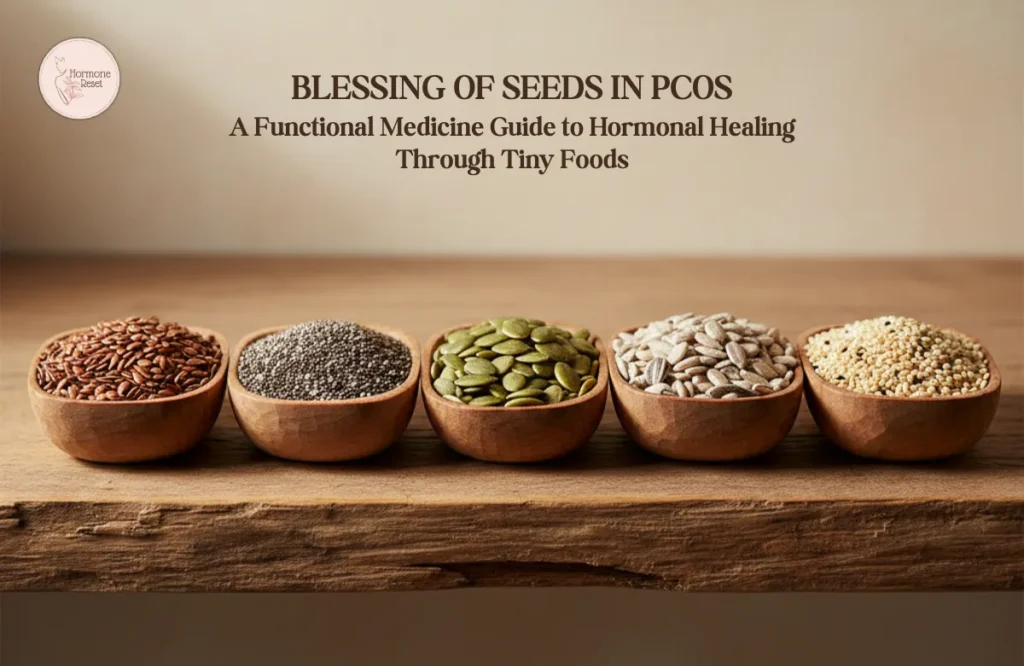Maintaining your thyroid health is essential for overall well-being, and the good news is that adding specific natural foods to your diet can give a significant boost to your thyroid health. These six foods are not only tasty but also packed with nutrients that support thyroid function.
Let’s dive into the details of how each of these 6 natural food boosts your thyroid health.
1. Seaweed: The Ocean’s Gift

- Why It Helps: Seaweed is a rich source of iodine, an essential mineral that your thyroid needs to produce thyroid hormones (T3 and T4 – 3 and 4 indicate the number of iodine atoms attached to tyrosine). Without adequate iodine, your thyroid can’t function optimally, which may lead to hypothyroidism.
- Technical Insight: Iodine is crucial for the synthesis of thyroid hormones. Seaweed varieties like kelp and nori provide a concentrated source of iodine, helping to ensure that your thyroid gland has the raw materials it needs for hormone production.
- How to Enjoy: Incorporate seaweed into your diet by adding it to salads, soups, or enjoying it as a snack in the form of seaweed chips. A little goes a long way in meeting your iodine needs.
2. Brazil Nuts: Tiny But Mighty

- Why It Helps: Brazil nuts are a powerhouse of selenium, a trace mineral that supports the conversion of T4 (inactive thyroid hormone) into T3 (active thyroid hormone). Selenium also has antioxidant properties that help protect thyroid cells from damage and also help in the reduction of thyroid antibodies(in the case of Hashimoto’s Thyroiditis).
- Technical Insight: Selenium is a key component of enzymes known as selenoproteins, which are involved in the conversion of T4 to T3. By ensuring sufficient selenium intake, you can help optimize this crucial metabolic process. Being a powerful antioxidant, it also helps protect the thyroid tissue from oxidative damage, as thyroid synthesis is oxidising in nature.
- How to Enjoy: Snack on a few Brazil nuts daily or add them to your trail mix. Their rich, nutty flavor makes them a delicious way to boost your selenium levels.
3. Fatty Fish: Ocean’s Bounty

- Why It Helps: Fatty fish like salmon, mackerel, and sardines are rich in omega-3 fatty acids and vitamin D. Omega-3s help reduce inflammation, which can support overall thyroid function, while vitamin D is important for maintaining a healthy immune system.
- Technical Insight: Omega-3 fatty acids have anti-inflammatory properties that help manage autoimmune conditions like Hashimoto’s thyroiditis. Vitamin D plays a role in modulating the immune response, which is important for thyroid health.
- How to Enjoy: Aim to include fatty fish in your diet at least twice a week. Grill, bake, or broil your fish to enjoy a nutrient-dense meal that supports thyroid function.
4. Leafy Greens: Green Goodness

- Why It Helps: Leafy greens such as spinach, kale, and Swiss chard are packed with vitamins and minerals, including iron, magnesium, and antioxidants. These nutrients support overall thyroid health and help combat oxidative stress.
- Technical Insight: Magnesium and iron are involved in thyroid hormone production and metabolism. Antioxidants found in leafy greens help protect the thyroid gland from oxidative damage, promoting better thyroid function.
- How to Enjoy: Add a handful of leafy greens to your smoothies, salads, or sauté them as a side dish. They’re versatile and easy to incorporate into a variety of meals.
5. Berries: Nature’s Candy

- Why It Helps: Berries, including blueberries, strawberries, and raspberries, are rich in antioxidants like vitamin C and flavonoids. These antioxidants help protect the thyroid gland from oxidative stress and support a healthy immune system.
- Technical Insight: Vitamin C is crucial for the synthesis of thyroid hormones and has antioxidant properties that protect thyroid cells from damage. Flavonoids further enhance antioxidant protection, supporting overall thyroid health.
- How to Enjoy: Enjoy berries as a snack. They provide a sweet and nutritious boost to your diet.
6. Chia Seeds

- Why They Help: Chia seeds are high in omega-3 fatty acids, fiber, and protein. Omega-3s help reduce inflammation and support overall hormone balance, including thyroid health.
- Technical Insight: Omega-3 fatty acids play a role in reducing inflammation, which can benefit thyroid function. The fiber content aids in digestion and nutrient absorption.
- How to Enjoy: Mix chia seeds into your daily diet. They also work well as a topping for salads.
Book a free discovery call
Wrapping It Up
Incorporating these thyroid-friendly foods into your diet can be a delicious way to support your thyroid health. Each food offers unique nutrients that play a role in maintaining thyroid function and overall well-being. For personalized advice, consider consulting with a healthcare professional or nutritionist.
By making these nutrient-rich foods a regular part of your meals, you’re taking positive steps towards a healthier thyroid. Enjoy the journey to better health with these tasty and nutritious choices!
References :
- Ventura M, Melo M, Carrilho F. Selenium and Thyroid Disease: From Pathophysiology to Treatment. Int J Endocrinol. 2017;2017:1297658. doi: 10.1155/2017/1297658. Epub 2017 Jan 31. PMID: 28255299; PMCID: PMC5307254. – https://www.ncbi.nlm.nih.gov/pmc/articles/PMC5307254/
- Benvenga S, Famà F, Perdichizzi LG, Antonelli A, Brenta G, Vermiglio F, Moleti M. Fish and the Thyroid: A Janus Bifrons Relationship Caused by Pollutants and the Omega-3 Polyunsaturated Fatty Acids. Front Endocrinol (Lausanne). 2022 May 27;13:891233. doi: 10.3389/fendo.2022.891233. PMID: 35712237; PMCID: PMC9196333. – https://www.ncbi.nlm.nih.gov/pmc/articles/PMC9196333/
- Zhou Q, Xue S, Zhang L, Chen G. Trace elements and the thyroid. Front Endocrinol (Lausanne). 2022 Oct 24;13:904889. doi: 10.3389/fendo.2022.904889. PMID: 36353227; PMCID: PMC9637662. – https://www.ncbi.nlm.nih.gov/pmc/articles/PMC9637662/
- Macvanin MT, Gluvic Z, Zafirovic S, Gao X, Essack M, Isenovic ER. The protective role of nutritional antioxidants against oxidative stress in thyroid disorders. Front Endocrinol (Lausanne). 2023 Jan 4;13:1092837. doi: 10.3389/fendo.2022.1092837. PMID: 36686463; PMCID: PMC9846570. – https://www.ncbi.nlm.nih.gov/pmc/articles/PMC9846570/
Share





Leave a Reply